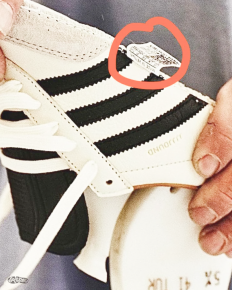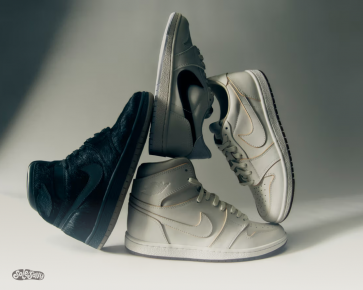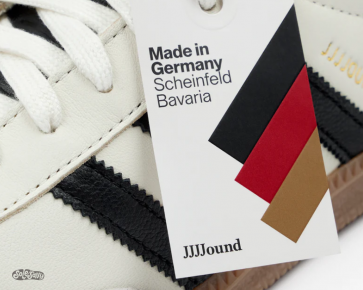Jjjjound and adidas are coming under fire today after an eagle-eyed Redditor pointed out a Made in Vietnam label on the inside of their Samba collaboration (photo below) from screenshots of the brands’ promotional videos for the release.
This normally wouldn’t be an issue, but the brands have been touting the Made in Germany quality associated with this release – which also brings with it a price-point of $250 USD.

Sneakerheads have grown accustomed to associating sneakers “ MADE IN ____ †as a sign of increased quality and craftsmanship. New Balance has entire collections dedicated to their Made in UK product lines, and Jordan Brand’s upcoming $1000 luxury iteration of the Air Jordan 1 is being praised for it’s Made in Italy construction (below).
But what does all this really mean?

Unfortunately there’s no easy answer, because the laws differ between region.
For example, according to the FTC, Made in USA means that “all or virtually all†of the product has been made in the United States of America.
While something tagged Made in the UK means there is either a “substantial transformation” and/or that at least 50% of the manufacturing of / value added to such products is completed in the UK.
So what about Made in Germany?

German courts have ruled that products can be labelled as Made in Germany as long as the final assembly steps, the decisive production process, and a significant proportion of the value chain occurred in Germany.
For those unfamiliar, a value chain is every step that goes into the creation of a finished product, from its initial design to its arrival at a customer’s door. This means that a Made in Germany seal also takes into account the development, design, and quality assurance that goes into the overall manufacturing process – not just the physical construction.

While photos might be circulating of tags with Made in Vietnam on them; by rule, Jjjjound and adidas may still use the Made in Germany seal as long as the final assembly occurs in Germany – which, according to their social posts, it has. It’s likely that a portion of the uppers was assembled in Vietnam, and then sent back to Germany for final production and quality assurance; thus fulfilling enough of the qualifications for the Made in Germany title.
Could these very obscure guidelines be misleading for consumers? Absolutely. Did Jjjjound or adidas do anything legally wrong? They did not. As much as it is the responsibility of a brand to be honest with it’s marketing, it’s also up to the consumer to do their due diligence and not just take these kinds of things at face value.
The more you know 🌈



